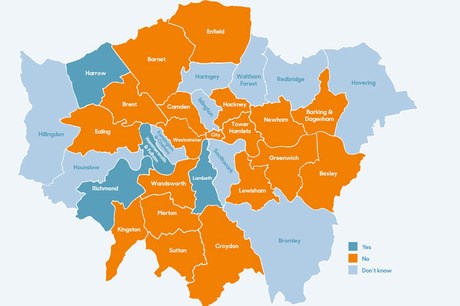Parents working shifts struggle to find flexible childcare
Wednesday, September 10, 2014
Parents working outside the typical nine to five in the capital face a struggle to find childcare to fit with their working day, new research reveals.

The Family and Childcare Trust’s 2014 London Childcare report says that maternal employment is lower than elsewhere in the city because of high childcare costs and a shortage of places.
For those working shifts, just a handful of London's 33 councils - Hammersmith and Fulham, Harrow, Lambeth, and Richmond - are able to provide sufficient childcare for parents working outside office hours.
The childcare charity says that parents in London pay 28 per cent more for childcare than elsewhere in the country, with 25 hours a week costing £109.89 a week for a child under two.
Over the course of a year, this equates to paying £1,500 more than parents elsewhere.
The report also reveals that 11 local authorities do not have enough childcare for working parents, with the same number without enough places for two-year-olds, ‘a worse position than in 2012’.
Twenty-three local authorities do not have sufficient childcare to meet the free early education offer for two-year-olds.
The provision of childcare for disabled children is also worse than in 2102, with 15 local authorities admitting they do not have enough places and eight more saying they do not know if they can offer sufficient childcare.
The map below shows responses from local authorities on the sufficiency of childcare for parents working atypical hours.
Anand Shukla, chief executive at the Family and Childcare Trust said, ‘In our 24/7 city, there are 1.4 million people – including nurses, hotel and shop workers and police officers - who are employed in sectors that frequently involve unusual working hours, and many of them are parents. The childcare system in London, with big gaps in provision, lack of flexibility and exorbitant costs represent a big barrier to employment for far too many people in our capital.
‘Right now we want to see local authorities making sure there is sufficient childcare for working parents. But for many London parents, work won’t pay until there is a complete overhaul of our broken childcare system.’
The report also claims that while childminders are often able to provide more flexible hours, their numbers have declined by 13 per cent in the past two years, which the report attributes to low pay in the sector.
In response to the report, early years organisations have urged the new ministerial team to urgently look at the issues of underfunding.
Liz Bayram, chief executive of the Professional Association for Childcare and Early Years, said, ‘PACEY recognises the burden that London parents are facing with rising childcare costs, as highlighted by this report. But it’s often forgotten that childcare professionals are among the most poorly paid professionals. The report itself cites the average cost for a week of childcare from a childminder as just £5.45 an hour, which is less than the minimum wage and childminders still need to cover their heating, petrol, food and resource costs.
‘Government is providing more support to families through its tax free childcare plan and extensions to the free entitlement but it is clear that more is needed both in terms of childcare costs support and improved opportunities for parents to work flexibly, to balance family and working life. High quality childcare is not cheap and more investment is needed to support providers to deliver the flexible, quality care that children and families deserve.’
Neil Leitch, chief executive of the Pre-school Learning Alliance, said, ‘This report supports what we have been saying for many years now: if we are to build an affordable, sustainable childcare sector in England, fundamental funding reform is necessary.
‘Many of the challenges highlighted in the report – rising childcare costs, lack of childcare sufficiency and poor staff salary levels – are a direct consequence of a sustained lack of adequate Government investment into the childcare sector. As such, any review of existing funding systems that does not acknowledge this fact is certain to fail.
‘Early years providers continue to deliver high-quality early years education and care despite ongoing funding inadequacies, but this situation is simply not sustainable in the long-term. As such, we urge the new early years team at the Department for Education to address this issue as a matter of priority.’







